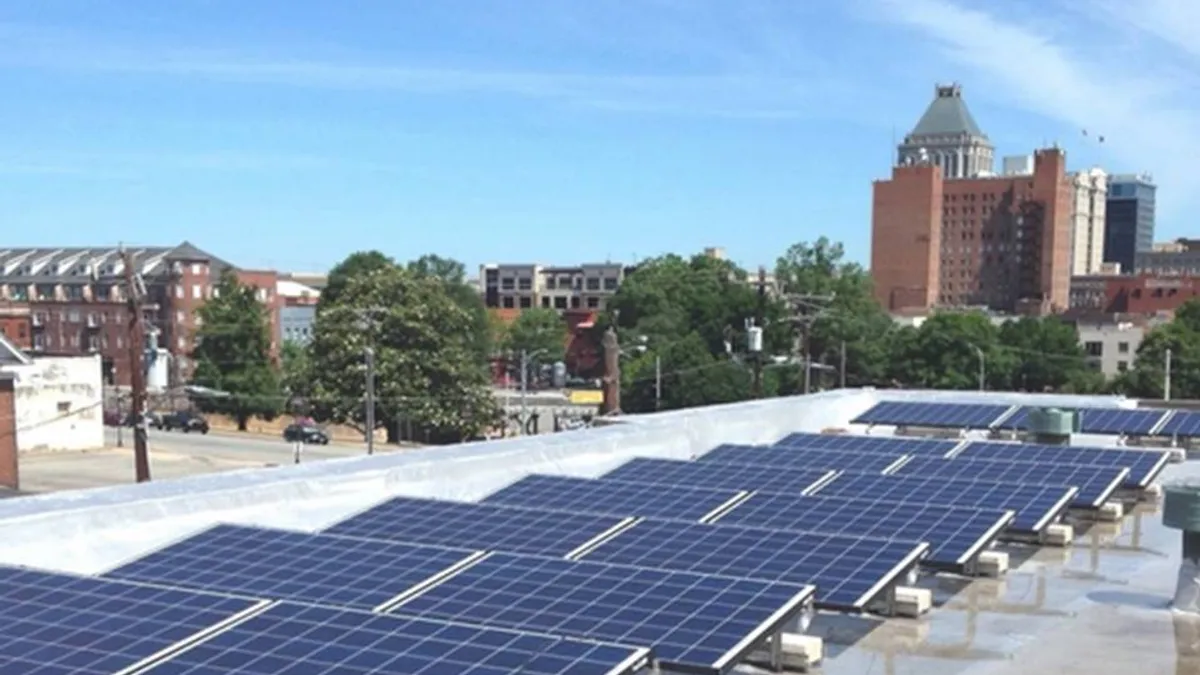Dive Brief:
- Solar advocacy group NC WARN built a 5.2 kW solar project on the roof of North Carolina’s Faith Community Church and is selling the power directly to the church, bypassing Duke Energy, the regulated utility. The group has asked state regulators to approve the arrangement to test whether the variation on third party ownership (TPO) solar financing is legal.
- NC WARN wants the North Carolina Utilities Commission (NCUC) to find the TPO agreement to be a public service, allowing the church to avoid upfront costs in solar installation. Therefore, the group says, the agreement should be allowed under state law even though the sale of solar-generated electricity to anybody but the local utility is typically prohibited.
- NC WARN believes it can win approval from the NCUC, and the courts if necessary. Duke Energy, the state’s dominant electricity provider, argues NC WARN is using utility privileges but avoiding rules and regulations governing utilities. Duke wants a collaborative process with NC WARN and all local renewables stakeholders to resolve the full spectrum of North Carolina renewables policy issues, including TPO.
Dive Insight:
NC WARN’s Solar Freedom initiative provides for a renegotiable 3-year agreement for the sale of the system’s output to the church at $0.05 per kWh, less than half its rate from Duke. NC WARN argues its sale of electricity to the church at a reduced rate falls under a previous commission ruling allowing such arrangements because it is not acting as a utility, but providing a public service.
The regulatory test case comes at a time when solar advocates and the utility are also debating a TPO bill in the state legislature. NC WARN backs North Carolina’s HB 245, dubbed the Energy Freedom Act, which would legalize TPO and give third parties the right to sell power directly to consumers.
Duke Energy wants a collaborative process that involves all the issues and includes all the stakeholders, similar to the 2014 South Carolina process it participated in, Spokesperson Randy Wheeless said. That process, he added, legalized TPO in South Carolina.
HB 245 is currently being debated in the Committee on Public Utilities in the North Carolina House. It has 30 co-sponsors, but has been in committee since March.













